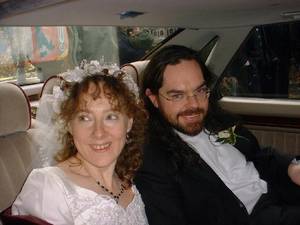Personal Space
Hi ! Welcome. No matter what state you came here in, I'm going to interrupt it for a brief interlude of therapeutic silliness for the simple reason that silliness is one of the most powerful balancers in the universe... if you can be silly, it is harder for you to take yourself too seriously, be too knocked over by critics, be turned into a sheep or get lost in our heirachical world:
Who is 'Polly'?
So, now, silliness aside, you may want to know some facts.
I was born in 1963 in the inner city of urban Australia. Though I was was formally named Donna by my mother on the basis it meant 'female' in Spanish, I was, instead referred to by all close to me as Polly until after the age of 5 when the name Donna began to be used by my school teachers and I generally stopped hearing myself called Polly after the age of 8 except from my father and his work colleagues. Donna was a name with which I commonly failed to identify or easily respond to though was trained to by the age of 9. I reverted to the name Polly in 2015, legally changing my name. Whilst 'Donna Williams' remains my 'fame name', my married name is Samuel and I am now Polly Samuel.
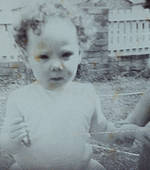
FRUIT SALAD
In the 1960s 'autism' was deemed 'childhood psychosis' and largely unheard of as the incidence of autism was then thought to be around 4 in 10,000 children. Today, of course, autism is merely one of a range of autism spectrum conditions and up to 1 in 88 children are presently diagnosed on the autism spectrum.
We are all more than a condition, a jumbled jigsaw, an Autism 'fruit salad'. Nevertheless, here's some of mine.
In 1965, aged 2 years old, I was admitted for a three day hospital observation at St Elmo's Private Hospital in Brunswick, Victoria. I was to be tested for deafness and Leukemia (I had constant infections, easy bruising, bleeding gums, my eyelashes would come out in clumps). I also had a stomach tensing and compulsive coughing tic (later diagnosed as Tourette's) that compelled me to the point I was coughing blood, appeared deaf, stared through everyone and everything and showed no response to pain. My parents were told I wasn't deaf and didn't have Leukemia. According to my father, the doctors had, instead, assessed that I was psychotic. In the 60s autism was termed 'childhood psychosis' and the 2-5 year old children who today would be diagnosed with autism, were often instead deemed 'psychotic'.
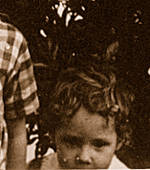
Once a parents' child was diagnosed as ''psychotic' they were generally advised to place them in a large psychiatric institutions and get on with their lives. As a result an entire generation of autistic adults were 'hidden' until the 80s and 90s when those same institutions were being closed down and those who'd survived them were being integrated into the community.
In primary school I became labeled emotionally disturbed and was tested for deafness up to the age of 9 when my language processing disorder was finally understood (also later formally diagnosed by audiologist, Dr Leslie Tan).
At the age of 10 a teacher named Christine who had been at a family party found me in the street after the party erupted in violence. She took me home overnight and after returning me to my family, she apparently raised the word autism with my family, a word which in 1973 was a very accusative thing to say to a mother.
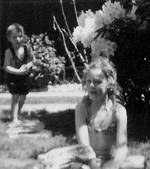
Although a diagnosis of psychosis at age 2 in the 60s was essentially the same as a diagnosis of autism today, I continued instead to be more conveniently introduced by my father as 'that's Polly, she's feral' and 'that's Donna she's psychotic/disturbed' by my mother so I was aware I was not usual but my condition was never discussed with me and it was in my mid 20s when my early childhood diagnosis of autism was confirmed by Australia's leading autism expert at that time, Dr Lawrence Bartak of Monash Medical Centre and I got to finally discuss my own condition with someone.
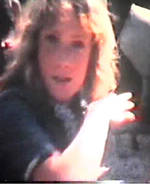
Now, if you are a conspiracy theorist already well read on every recirculating rumor and now ready to dare read my fully detailed diagnostic history, or if you're just a researcher or parent wondering how the hell can someone like 'that' have 'ever been autistic', I have conveniently set out every detail for you all here on my diagnosis page . Enjoy ;-).
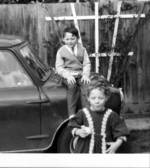
NAVIGATION
Being an alienated, out of control feral child taught me a lot. It taught me about assumptions, integrity, resilience, passion, adaptability, war, humility, empathy and it made me a natural anthropologist, watching from the sidelines even when I seemed like a walking cartoon and a one-woman-show.
I lived in an emotional and perceptual chaos which taught me surrealism and the relativity of the word 'normal' for there are many different versions of 'normality'. My senses and perception were chaotic, fragmented and constantly shifting and fluctuating and the ability to understand things with meaning was so delayed I looked like I wasn't 'on line' but also like someone behaviorally and emotionally 'disturbed'.
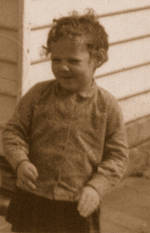
I was nine before I could fluently understand with meaning three sentences in a row. I was, however, fluently echolalic (and echopraxic) and as such stored huge strings of sound patterns and sang and chattered to myself most of the time in stored lines, jingles and advertisements which today would have been called Logorrhea. As such I was generally discussed as 'she's just muttering away to herself'. In the absence of meaning, my condition nevertheless helped me develop, instead, a highly refined capacity to sense pattern shifts, a great natural capacity for mimicry, parody and characterisations and a seemingly bottomless memory for stored strings of information even though I had the short term memory of a goldfish and dyslexically tumbled receptive information processing. Being both meaning deaf and meaning blind, I had no idea why anyone did anything but perhaps as a compensation for these deficits, I still could sense if someone was 'real', when a fight was coming, whether others were trying to invade 'my world'.
Parts of me deeply loved life and the sensory world but unlike 65% of the general population who are primarily visual thinkers, as someone meaning blind, mine was not the world of a visual thinker. Instead, I largely learned kinaesthetically; through direct physical and hands-on experience and patterning.
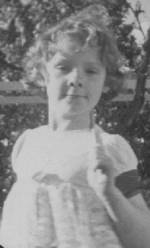
My mind was like a mosaic, my conscious thoughts intangible until I experienced them after they'd been expressed- usually through arts. I am still always surprised, have a great trust of unknown knowing, and have come to allow my preconscious mind to unravel and surprise me. I'm a systematician but otherwise I'm a doer. Only through doing can I realise what my intangible thoughts may have been.
In my visually fragmented, faceblind world, my reflection was my best friend and family and until adulthood I inhabited my body along with a number of other compartmentalised parts of me (what would, under different circumstances, have been an integrated whole). Though I'm a patchwork quilt, it's still one quilt. I know each of the fully formed selves that comprise 'Team Donna' and have an overall strong sense of Team Donna, in the world, and in my own world I came to think of as DIDville. By 2015 I achieved integration of these parts of me into a whole that identifies best with my original name - Polly. So whilst I am formally, legally and professionally 'Donna', the name I more personally identify with is 'Polly'. Don't worry, though, I will answer to either.
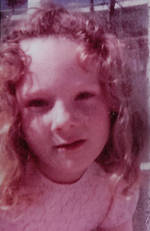
My grandparents had been my custodians and lived in our shed until I was 4 and a half. After that, I learned to navigate not only my autism but the regular domestic violence between my parents, the constant endangerment of their raucous all night parties, guns and substance abuse, and what I experienced as the personality disorder of my mother. I was fascinated by my playground that was the wilderness of the streets. It was a feral childhood with all its fortune and its horror. By age 3 I was taking myself to the park. By age 8 I had found myself another house to sleep at. I am under no illusions that none of these things caused my autism, although they challenged me to become far more capable than perhaps I might ever have been in a healthier, safer family. I am also very aware how PTSD and DID got added to my challenges, neither of which I confuse with my autism.
As the second shortest girl in my school when I was 9, I was put on zinc, vitamin C and multivitamin-minerals. Through this, finally eating whole meals, a range of communication related interventions and an altered approach by the environment at home and at school, I progressively came to realise that meaning existed, not just pattern and by age 9-11 developed functional speech, albeit at first stilted simple sentences and by age 12, one sided litanies.
By 13 I found myself an unofficial 'foster home' and swung between sleeping there, in a friend's shed, or walking around the streets all night. By 15, visits to my family's home were met with such regular violence at the front door that I couldn't walk to the porch any more without my body quaking like a shell shocked war veteran. As my family's home became too unsafe a place for me to live at all. I came to fend for myself in a world vulnerable to the wants and prejudices of strangers. I was used, abused, ignored, flag waved, rescued and now and then had enough glimpses of the hope for equality to be hungry for it.
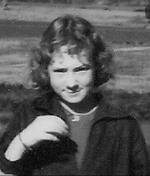
I was 18 when a psychiatrist and social worker assisted me to return to education and I moved from being largely illiterate and innumerate to being a college graduate who ultimately completed a graduate degree in Linguistics, an honors degree in Sociology and a post graduate Diploma of Education as a qualified teacher. By the end of my degree, I had the fortune that my health finally collapsed completely at the age of 24. It was only then that I had extensive intervention by medically qualified practitioners for the gut, immune and metabolic disorders and their physical, developmental, cognitive and neurological fallout that had been with me since infancy. A year into this treatment I began to hold conscious awareness as a relatively cohesive self and could work towards guiding my own life instead of merely surviving moment to moment.
In the chaos and disorientation of that year I wrote my autobiography, Nobody Nowhere in a desperate last attempt to understand where I'd been and ask if there might be some hope beyond what I'd struggled to construct as 'life'. The book, the first of ten books I've had published, got left behind in the UK at the time and accidentally became an international bestseller, read by millions of people the world over, and the first mainstream publication of an autobiography of someone who came to be diagnosed 'autistic'. The film rights to the book sold to a Hollywood producer and I wrote the screenplay to the film, Nobody Nowhere.
Dietary interventions are for those who need them and I happen to be among those people with autism who do. For me, the health disorders I babysit mean a life that is gluten, dairy, legume (incl soy/peanuts), and sugar free, as well as low salicylate. Over the last two decades I've developed elastic definitions and new inventions of 'ice-cream', 'cake', bread', 'custard', 'icing', and the benefits to what were once severe health, information processing and mood, anxiety and compulsive disorders give me a level of stability and inclusion that far compensate for any lack of shop bought pizza. I actually manage a healthy, balanced diet in spite of the restrictions, sometimes perhaps more so because of them!
I work as gracefully as I can with that as well as with Primary Immune Deficiencies, a Hypoventilation Syndrome involving autonomic dysfunction, Ehlers-Danlos (type III/IV), being a survivor of breast cancer and living with PTSD, DID and Autism and its associated sensory-perceptual and info processing issues.
I try and keep my mind more on what does work than what doesn't and live the kind of life I'd have no, or at least few, regrets about. I don't do label-lust and nor do I care for the martyrdom of being a 'sufferer'. This is because if I'm going to have conditions I can't get rid of then I'd rather integrate their associated challenges into my daily life so I can get on with focusing on my personhood as a human being among the wide colorful diversity that is humankind.
I express myself and connect through art which is a huge part of who I am. I'm a writer, artist, sculptor, singer-songwriter and an emerging screenwriter. But those who think these abilities were always out in the open, obvious, think again.
Had my father not left a typewriter in my room when I was 9, I'd not have taught myself to type letter strings, then word lists, then poetry, and typing then lead my speech. Had my mother not got a pianola when I was 14 I'd never have realised the musical intervals I played on the air from music in my head could transfer onto keys. Had my father not left a record player and a box high with 78s in my room (first left a pop up 'toaster style' 45s record player when I was 3!) I'd not have learned to sing in a vast repertoire of voices so that eventually in adulthood I would finally sing in my own. Had my father not left me oil paints when I was 13 I'd not have discovered I could paint, hidden the works in the roof void and only in my 20s taken painting back up again. So you see, what we think of as talent has stranger, accidental foundations than you imagine.
In my spare time, I have, on and off, been a community volunteer (with foster children, homeless youth, the elderly, migrants and refugees, in the autism community and most recently as a tutor) seeking to stay connected to the world around me, to understand it, to find ways of feeling at home within it, in spite of a dance some parts of me have had with social phobia.
PERSONHOOD
My autism dances with my personhood... and my personhood must also dance with my autism yet whilst not separable, nor are they interchangeable with each other.
I found a diamond of a person and he shone so bright I asked him to marry me. We are often surprised when people mention an autistic marriage. For how can two people, strong enough in their own worlds to be called autistic find someone with whom to have a meeting of hearts and minds for life. Yet we all have autistic moments and marriage sustains these. We can also have an autistic life and with both partners comfortable and at home in that autistic reality autism may be an asset more than an obstacle. A marriage is a ceremony recognising the joining of hearts and minds between a couple choosing each other as their life partner. Autistic hearts and minds are as capable of finding that connection and making that commitment as any human being.
Chris adores me for whatever I am and however I change. He is my closest friend and a warm, humble, quiet (rather Aspie) gentleman. But by marrying someone who has D.I.D Chris also married a team and all on that team have come to love and respect him as my friend, my family.
Like my father and paternal grandmother, I'm fun loving, a helper, creative and friendly. Like my paternal grandfather, I'm solitary, autonomous, I keep my own counsel and am most in company with myself. It takes quite some time for me to move from friendly to friends and I prefer few, but healthy friendships with those able to keep good boundaries.
I identify with the exuberant, idiosyncratic, vigilant, solitary, self sacrificing and sensitive personality traits as my primary traits with the serious and conscientious as my secondary ones. I best fit the INTJ temperament, known as 'the mastermind'.
I grew up with Exposure Anxiety so a lot of me is rather 'cat'. Parts of me still prefer to watch lives, and celebrate them, from the sidelines. I'm autonomous, self-owning, surreal yet equally logical and practical, unapologetically deep yet relatively easy going, commitedly real yet can characterise the bullshit around me, fun loving and silly yet responsible and sensible, empathic with solid boundaries. I have a deep love of artism and nature in all its forms and appreciate and celebrate my similarities and connectedness as much as I try to walk comfortably alongside and with my differences. I have a deep need for grace and balance in my life but as an artist am unafraid of passion. I don't do entanglement, gush, fuss, or cling. Most of me is geared for practicality, not hand holding. But if I feel free to go I'll also feel free enough to visit.
Parts of me have a Taoist's determination to strive for balance and detachment, a Sociologist's love of humanity and equality and an artist's love of connection and discovery. Other parts live for freedom and warmth, belonging and being equal and part of that expresses itself through arts which are all other parts of having a voice out loud to myself before the world if it so chooses. The first bite of my own pear, though, is mine.
I believe in being free to be oneself, in challenging ideas of ourselves in order to find out who's really there and I strive to face change and weather criticism with grace because there is no greater reward in life than the freedom to find out who we are not and to infinitely discover ourselves in the becoming of it. I believe in trying, and in staying happy and wild and seeing the world in a piece of fluff. I believe in the strength of daring humility.
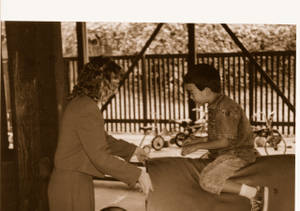
SPIRITUALITY
Most of me is spiritual but none of me is religious. I believe we can find an essence of 'God' in all things, including ourselves. When I have a question or need a direction, I don't assume to have the answer nor assume to have the sense to plan, but ask the question, tell the desire for change, as if to the air. In the morning, Sandman has usually taken care of it and progressively the answer or resolution is there.
This is my version of 'God', the unraveling of invisible string when I stay out of it and trust that unknown knowing is cleverer than conscious awareness even if I look stupid in between. I try to see past the enemy within myself and my own self righteous rigid black and white beliefs of absolutes, what's what and who's who.
As for neurodiversity, I'm comfortable with real neurodiversity... I see it in the street in every human face, every animal I encounter. I'm really happy we're all so wonderfully different and that that difference is so wonderfully ORDINARY.
AS A PROFESSIONAL
With a degree in Linguistics, a post graduate degree in Sociology and as a tertiary qualified teacher, I became a consultant in the autism field since 1996. In time I had worked 1-1 with over a thousand people on the autistic spectrum through schools, welfare and health services as well as directly with families and adults themselves. This level of direct hands on experience in the field taught me there is no one thing called an autism spectrum condition, there are autismS. Furthermore, all people experience bits of 'autism fruit salad' and my work as an autism consultant also brought me into consulting work assisting those not diagnosed on the autism spectrum who, nevertheless, had related challenges.
Whilst I became an international public speaker, I started out as an incredibly reluctant one. As someone who grew up with Exposure Anxiety I had no natural desire for attention, no emotional use for applause, no natural desire to be looked at and much preferred solitude and autonomy. I felt like a cat-person in what generally a dog-person world. At my first US talk (Connecticut) in the early 1990s I came out and sat and cried for the first five minutes. The audience was silent and patient and I was so moved they didn't try to control me or talk to me, they just let me be, they trusted. I honoured that respect and eventually got to my feet and read the pages I couldn't understand in this state of shutdown until the words began to have meaning. In between I looked up, cried again and continued. They taught me I could dare to be me before others no matter what. They gave me so much more than I could give. Now I just walk out and introduce myself and even challenge my audiences to question me.
THE LAST YEARS
By 2012 (aged 48), and following anaesthetics and chemo for breast cancer, and the ensuing autonomic chaos including the inability to now keep myself breathing in sleep without a machine, I decided to largely retire. I joined U3A, joined a choir, taught beginners French, became an art teacher, a drama teacher, got cats and worked on the bucket list, not because I felt I was dying, but for the when and if in case I don't get the longevity so many of us expect. I still did some work in the autism world, but I no longer travelled. Nevertheless, I connect more than I ever did.
FINALLY
However I may be criticized or praised and for whatever reason you came to this website, I am proud of me just to be and you are welcome to find your being-ness here for your own sake.
Polly (Donna Williams) Samuel *)
FINALE
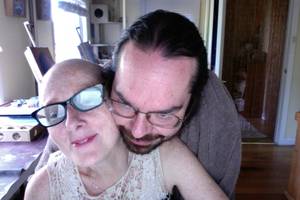
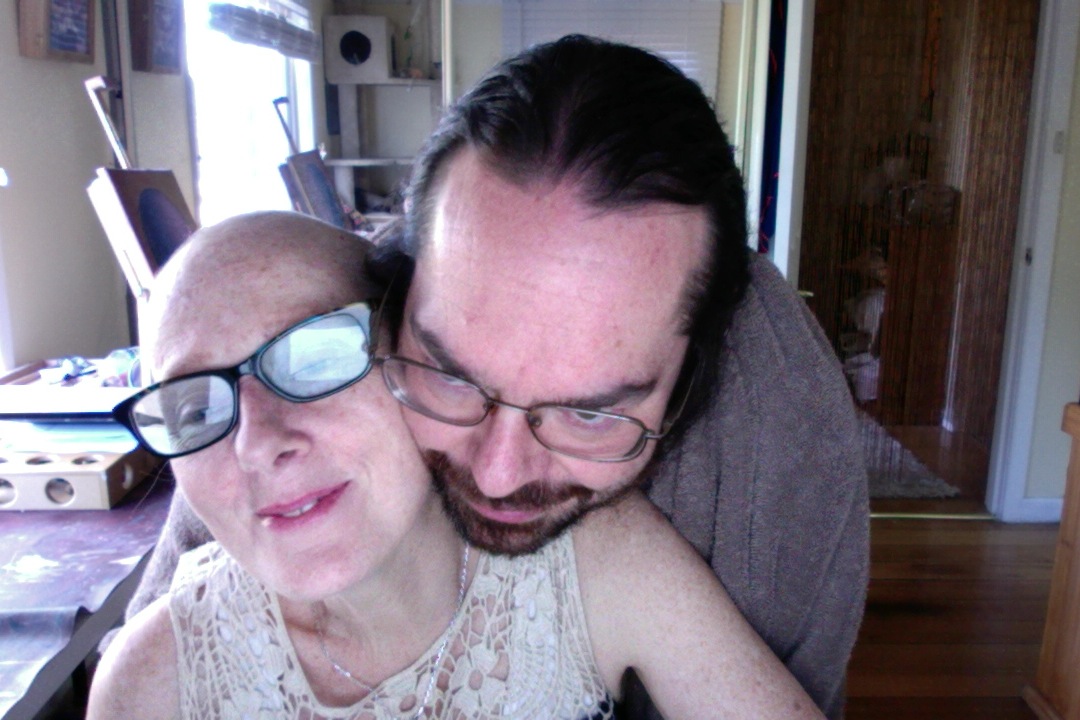
This year, in Sept 2016 I learned my breast cancer treated in 2011 had become metastatic/terminal/advanced (spread through my blood and lymph to other parts of the body) and spread extensively to my liver and spine.
Cancer can be slow growing or aggressive, hormone receptive or triple negative, primary or advanced and every type of cancer is also different, even breast cancer has over 20 different types.
Whilst Primary cancer (where a tumor in a particular part of the body where cancer cells have not spread through the blood/lymph to other parts of the body) is often treatable and even 'curable' in the sense once treated it will never return, In spite of what you'll find on social media Metastatic cancer is NOT a curable situation and 9,999 of 10,000 metastatic cancer patients will die from their cancer. Mine had mutated from being ER+ as a primary cancer and was now Triple Negative, meaning treatment options were far more limited than those with hormone receptive metastatic cancer.
A week later I began weekly chemotherapy for innumerable tumors to my liver, not to cure me but to give me a bit more time. It knocked these back by 75% but failed by January when the cancer again did what cancer does, mutates, grows drug resistant and stronger. The first chemo merely extended the time I had. The second drug failed completely as did the third. On 28th Feb I had already developed ascites, was being drained of 4-4.5 litres of leaked protein from my abdominal cavity due to liver failing and developed cachexia (extensive sudden loss of muscle and fat throughout the body). I learned no further chemo would have any chance of working for me and I had around 8 weeks left to live, probably of which 4 weeks would be reasonable quality time.
I want to thank you all for allowing me to share my life with you all in so very many ways. You gave me purpose, passion, belief in myself, you stretched my skills, and often collectively your belief in me since 1991 made me into a greater teacher, consultant, artist, person. I cannot thank the world enough for all it allowed me to share with it. It truly gave me 'a life'.
The journey of Chris and I since September 2016 was captured in December 2016 in the feature length documentary, Nobody Nowhere, which I hope the world gets to see one day when its funded and in production. Our journey was also captured in posts on social media, in photos and video clips which you can see collected here.
Sincerely, Polly Samuel (aka 'Donna Williams')
